GW ScholarSpace provides free, public access
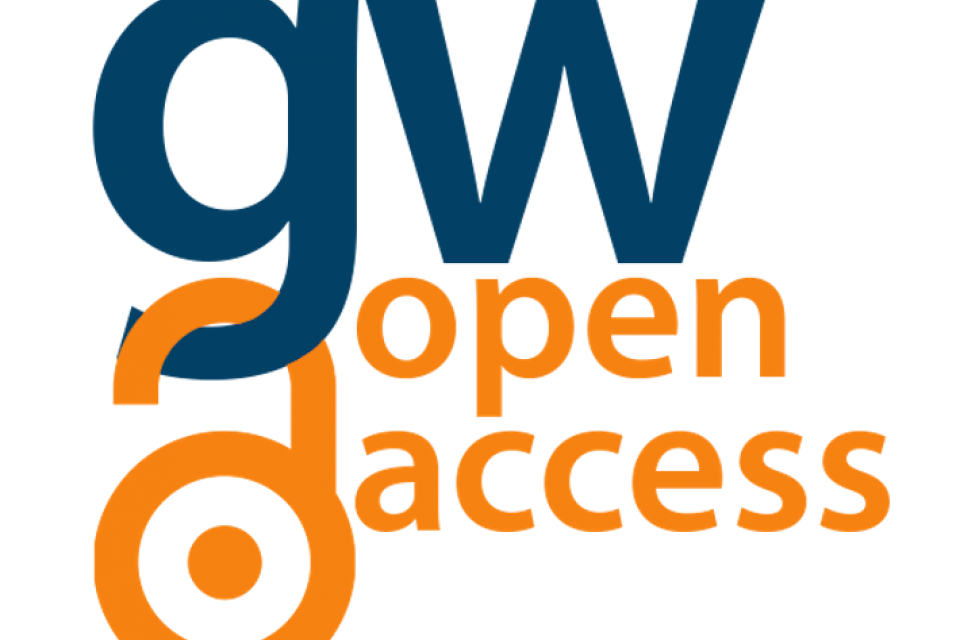
GW ScholarSpace provides free, public access, broad visibility, and long-term preservation for the research and scholarly works created by GW’s faculty, staff and students.

GW ScholarSpace provides free, public access, broad visibility, and long-term preservation for the research and scholarly works created by GW’s faculty, staff and students.
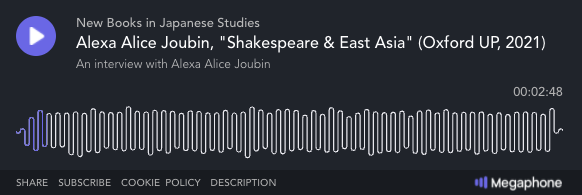
Shakespeare’s plays enjoy a great deal of popularity across the world, yet most of us study Shakespeare’s local productions. Alexa Alice Joubin‘s Shakespeare and East Asia (Oxford 2021) addresses this gap through a wide-ranging analysis of stage and film adaptations related to Japan, South Korea, China, Singapore, Tibet, Hong Kong, and Taiwan. The New Books Network interview about the book is…
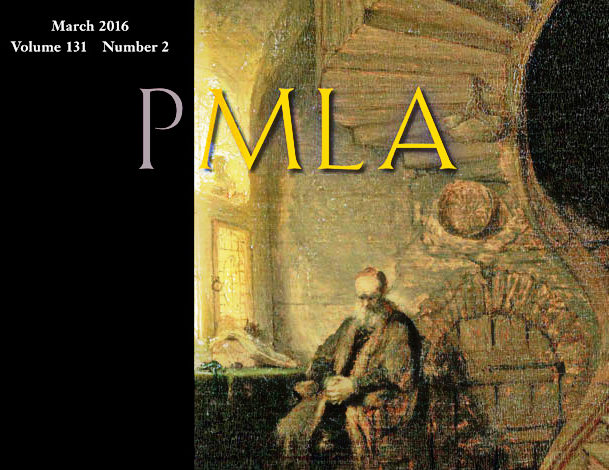
Announcement: A recent issue of PMLA features of cluster of articles on “the changing profession” entitled “Assembling the Ecological Digital Humanities” (or EcoDH for short). Jeffrey J. Cohen, Professor of English and Director of the GW Medieval and Early Modern Studies Institute, co-edited this essay cluster with Stephanie LeMenager (University of Oregon). Appearing in this cluster…

Open Access in the Disciplines: A Conversation October 6th, 12:00-1:30 pm (Gelman Library, Room 702): Learn how faculty from the sciences and humanities have opened their scholarship to the public, and the challenges and benefits they have encountered in the process. Panelists include Paul Brindley (microbiology), Lorena Barba (aerospace engineering), Ami Zota (occupational health), Alexa…
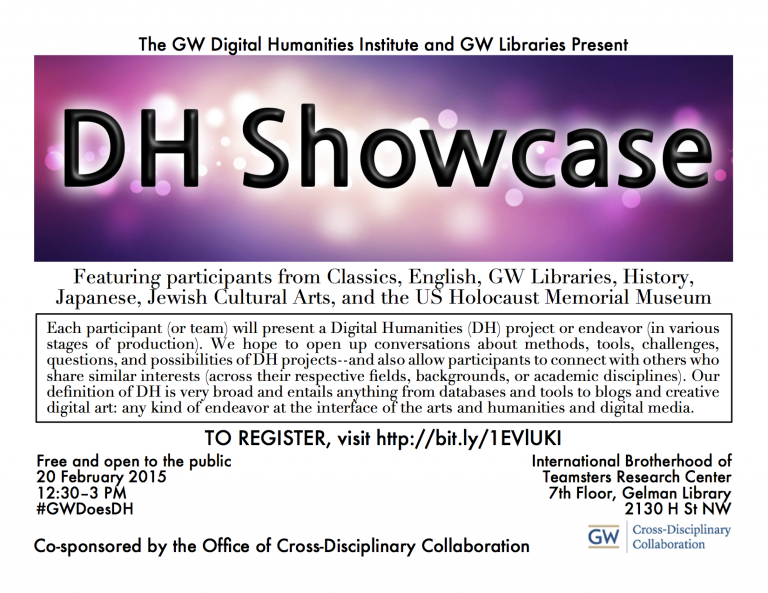
Get ready, people! Friday, February 20 is our first DH SHOWCASE. This interdisciplinary event is organized and sponsored by the GW Digital Humanities Institute, GW Libraries, and the Office of Cross-Disciplinary Collaboration. Our informal event will include brief presentations from Classics, English, GW Libraries, History, Japanese, Jewish Cultural Arts, and the United States Holocaust Memorial Museum. There will…
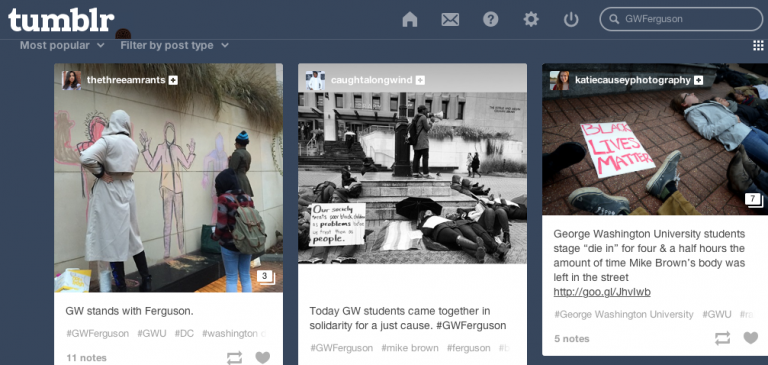
On December 2, GW student groups staged a four-hour “die-in” event to protest recent events in Ferguson, MO, and to make calls for social justice on campus, in the community, and beyond. This event was aggressively promoted on social media (Facebook page and on twitter using the hashtag #GWFerguson) and it was widely documented on tumblr and other platforms. As…
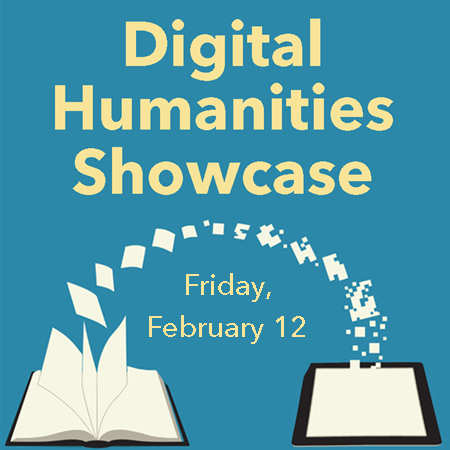
Friday, February 12 12:30 – 3 p.m. RSVP at go.gwu.edu/GWdoesDH Twitter hashtag: #GWDH16 Everyone is invited to a showcase of Digital Humanities (DH) projects underway across the University and the greater DC area. This year’s program will include brief clusters of presentations followed by discussion and a reception. Find out about innovative endeavors happening in Classics,…